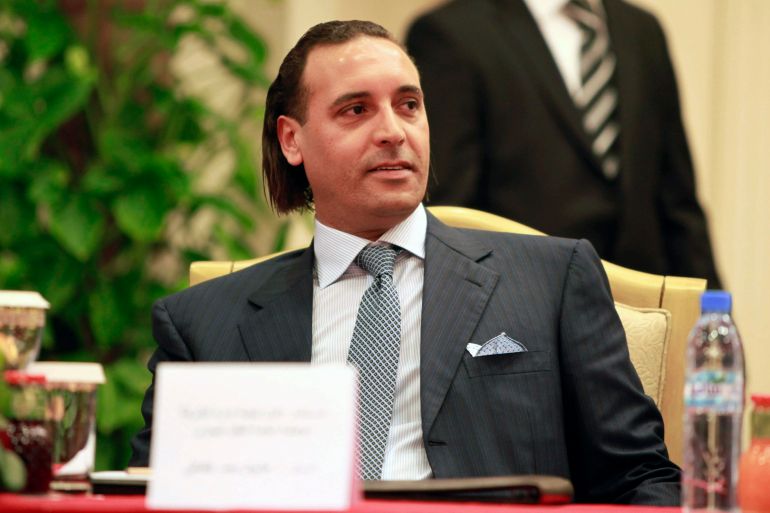Libya asks Lebanon to release Gaddafi son on hunger strike: Officials
The health of Hannibal Gaddafi has been deteriorating since he went on hunger strike on June 3.

Libya’s judicial authorities have formally asked Lebanon to release one of Libya’s former longtime leader Muammar Gaddafi’s sons because of his deteriorating health.
Hannibal Gaddafi has been held without charge in Lebanon since 2015 and his health has been deteriorating since he went on hunger strike on June 3, in protest at his detention without trial. He has been taken to hospital at least twice since then and has drunk only small amounts of water.
Keep reading
list of 3 itemsLibya’s High State Council elects new leader as political gridlock deepens
The eastern Libyan militia illegally towing back vulnerable refugees
According to two Lebanese judicial officials on Monday, Libyan Prosecutor General Al-Sediq al-Sour sent the request this month to his Lebanese counterpart, Ghassan Oueidat. The officials spoke to The Associated Press news agency on condition of anonymity because they were not authorised to talk to the media.
The note from al-Sour stated that Lebanon’s cooperation in the matter could help reveal the truth regarding the fate of a prominent Lebanese Shia leader, Moussa al-Sadr, who went missing in Libya in 1978.
It questioned why Gaddafi was being held and asked that he either be handed over to Libya or be allowed to return to Syria, where he had been living in exile with his Lebanese wife, Aline Skaf, and children until he was briefly abducted and brought to Lebanon eight years ago by Lebanese fighters demanding information on the whereabouts of al-Sadr.
The Lebanese police force later announced it had picked up Gaddafi from the city of Baalbek in northeastern Lebanon, where he had been held. He has since been taken to a Beirut jail.
The Lebanese prosecutor has now referred the case to Zaher Hamadeh, the investigative judge in the missing al-Sadr case, who is studying the Libyan request.
Al-Sadr’s disappearance
The disappearance of al-Sadr in 1978 has been a longstanding sore point in Lebanon. His family believes he may still be alive in a Libyan prison although most Lebanese presume al-Sadr is dead. He would be 94 years old.
He was the founder of the Amal group, Arabic for “hope” and an acronym for the militia’s Arabic name, the Lebanese Resistance Brigades. The group fought in Lebanon’s 1975-1990 civil war. Lebanon’s powerful parliament speaker, Nabih Berri, heads the group.
Most of al-Sadr’s followers are convinced that Muammar Gaddafi ordered al-Sadr killed in a dispute over Libyan payments to Lebanese militias.
Libya has maintained that al-Sadr and his two travelling companions left Tripoli in 1978 on a flight to Rome and suggested he was a victim of a power struggle among Shia groups.
Muammar Gaddafi was killed by opposition fighters during Libya’s 2011 uprising-turned-civil war, ending his four-decade rule of the North African country.
Hannibal Gaddafi, who was born two years before al-Sadr disappeared, fled to Algeria after his father was toppled and Tripoli fell to opposition fighters. He left with his mother and several other relatives. He later made it to Syria, where he was given political asylum and stayed until he was abducted.
Syrian authorities at the time blasted Hannibal Gaddafi’s seizure “by an armed gang” and have demanded he be returned to Syria.